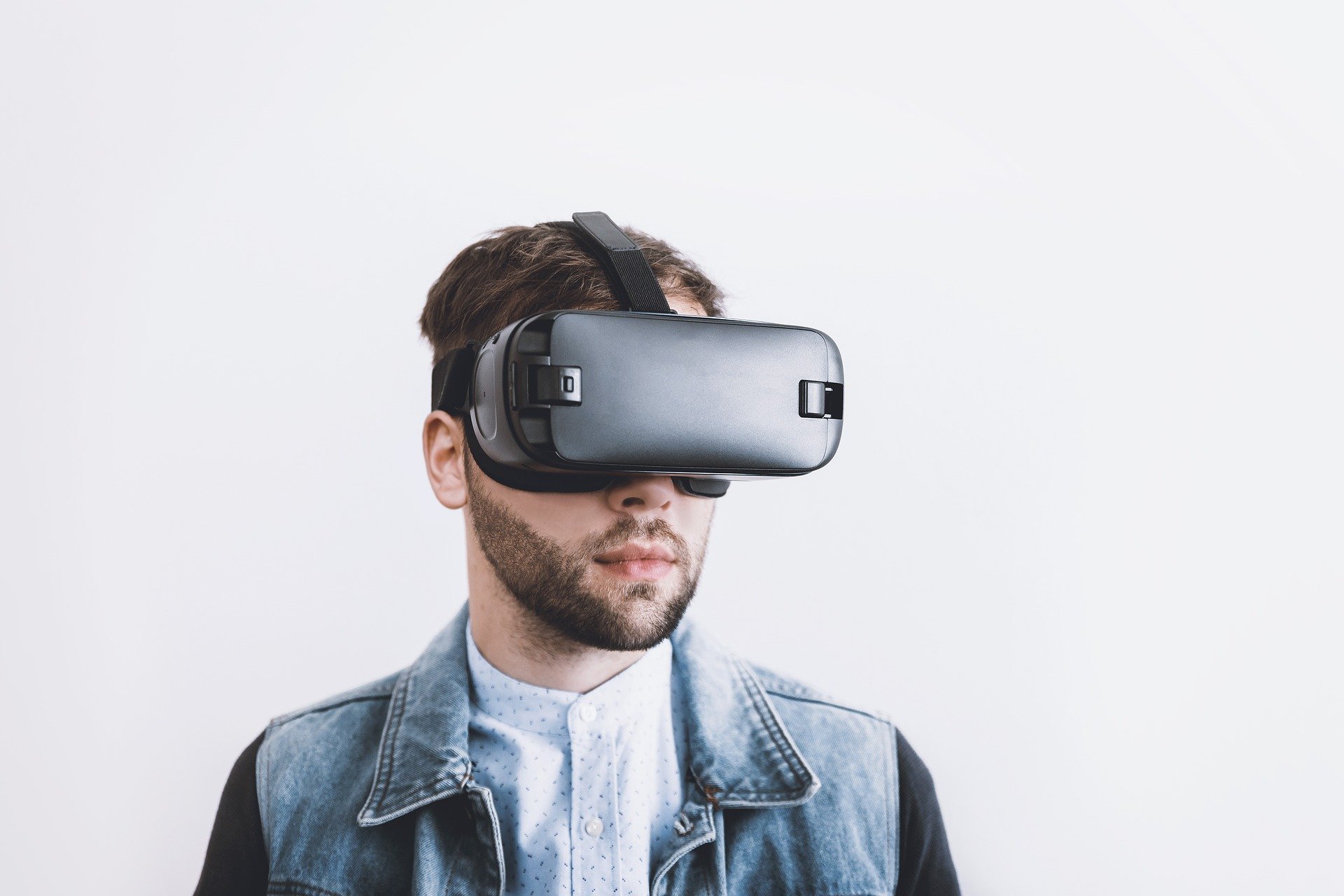Since the first time the term Virtual Reality Technology was introduced not as a bare concept, but as something actually invented, it has been winning huge gaming markets, and the market size seems to continue growing. Despite all the doubts, virtual reality, which at first seemed a bit fantastic, has become the next breakthrough in the world of technology, and caused fast and powerful development in other neighboring niches. Video gaming was the very first niche in which VR became available for an average person for personal use.
The reason why VR first won the hearts of gamers is because VR is all about immersive simulation of a three-dimensional environment. Gaming became the first sphere to use VR practically, test it out, and improve based on user experience and feedback. The gaming industry has benefited from this technology immediately, and the associated businesses have already made huge money. However, VR continues to transform the gaming industry, and what is even more important, the gaming industry experience enables other industries to find applications to VR, too.
Why VR Is the Future of Many Industries
VR makes video gaming even more versatile than before. There are individual and multi-player games; direct physical combat environments, racing (including different vehicles), acrobatic flying/tricks, exploration and adventure games, and challenging games where the players have to solve problems, move objects, and otherwise interact with the environment. Besides offering lots of new ideas and types of interaction, VR games have the following benefits:
- absolutely beautiful and appealing virtual objects
- real time gaming, especially if the game is shared with other players
- enriched gaming environment
- reality gets digitally extended, anywhere, anytime
- the gaming reality looks way more appealing and believable
- increases the users’ engagement
These advantages provided by VR technology to entertainment are not limited to video games only, but stretch to other types of entertainment, like movies, online casino games, etc. For example, with VR technology quality casinos in Canada offer full-immersive visit to the casino house, with the players being able to walk around and see the rooms in detail; realistic slot machines and table games; the ability to interact with other gamblers in the same casino by displaying gestures; real casino sounds; in-game chats.
As one can see, VR technology revolutionizes every type of entertainment it is applied to, and by doing so, it attracts more users to this or that entertainment. Those users who have already tried out services with VR included are unlikely to degrade back to simpler options, if they have a choice. As a result, businesses are pushed to develop and use VR, to boost their customers’ interest and demand.
The benefits offered by VR to businesses are huge, including, but not limited to:
- new possibilities and experiences to attract new customers, and to reduce the fear of new technologies in the reluctant potential customers, which leads to more sales
- making the customers loyal to the brand by giving them demo versions and test-drives of an excellent product
- new marketing tools to attract customers from previously unlikely sources – because everyone likes a good cartoon!
Businesses in different industries can already benefit from the technology, and the necessity, or ability, to utilize VR for their purposes makes businesses and whole industries adapt and evolve. This makes VR a lever for industries’ development in the near future.
The Pandemic & Shift in Priorities

Even before the pandemic caused by Covid-19, the VR technology had a bright future, being in demand by the game providers and associated companies. Sony, Google, Oculus, and other leaders of the niche worked on improving the VR headsets and making them more mobile. Developers were working on providing recreation of all 5 basic feelings during the games, paving the way to increasing the VR content. In the next few years, VR game products had to decrease in price.
However, the pandemic has amended these plans, and while VR gaming became even more in demand due to the boredom of lockdowns, the focus has shifted to industries more mundane. Due to massive transition to distant employment (when possible), and the need for distance education, VR started to be seen as a tool necessary for solving everyday problems, and needed faster than in a few years. Due to this shift in priorities, we are likely to see VR technologies in other spheres, pretty fast.
Education and Healthcare
The first two niches where VR is needed and will most likely be seen in the next few years are education and healthcare.
With healthcare, the utilization of VR was obvious from the very beginning; both learning and medical services will benefit from this advanced technology, allowing to improve healthcare.
Education, on the other hand, has seemed to drag behind, but the pandemic has shown that distance education will stay with us for a long time, and therefore this sphere will start developing quickly. Virtual Reality is only one of many technologies that will need to be utilized for distance education.
On the one hand, school and college education is likely to see a change in approach, because VR and other digital tools will allow the teachers and students more flexibility, and therefore, more efficiency.
On the other hand, education is not limited to school and college, at least, not anymore. Most companies, especially leaders in their niches, educate their employees on a regular basis, create courses and lectures, and VR is one of the tools that can be utilized for increased engagement, and increased efficiency. Digital tools allow us to create endless possibilities for educators and students.
Final Thoughts
VR still has a long way to go before it becomes a technology widely used for everyday needs in many industries. However, using VR for gaming allows this technology to evolve, while the developers can experiment and make it more available and affordable for other industries. Eventually, VR can become revolutionary for other niches, the same way it has revolutionized video gaming.





